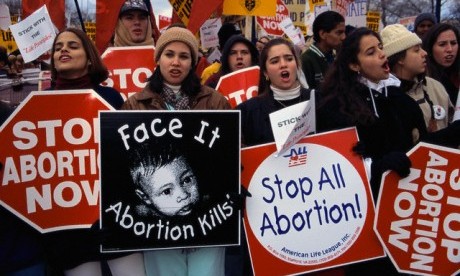Last week, Gallup released new data that, at first glance, appeared to show a significant change in Americans’ perspectives on abortion. The number of Americans who identify as “pro-choice” has dropped six points since last July, from 47 percent to 41 percent, while half (50 percent) of Americans identify as “pro-life.” Given the charged election year atmosphere, it is not surprising that some have leapt to the conclusion that this shift represents a dramatic sea change in support for the legality of abortion.
But such interpretations raise the question of whether these binary, politicized labels accurately capture Americans’ nuanced views on abortion. Last summer, a major national survey by Public Religion Research Institute uncovered a surprising but critical feature of the abortion debate: 7-in-10 Americans reported that the term “pro-choice” described them somewhat well (32 percent) or very well (38 percent), and nearly two-thirds simultaneously said that the term “pro-life” described them somewhat well (31 percent) or very well (35 percent). In other words: when they were not forced to choose between one label and the other, over 4-in-10 (43 percent) Americans said that they were both “pro-choice” and “pro-life.”
These overlapping identities are present in virtually every demographic group. For example, it is true of Democrats (56 percent “pro-life”; 81 percent “pro-choice”), Independents (66 percent “pro-life”; 73 percent “pro-choice”), and Republicans (79 percent “pro-life”; 52 percent “pro-choice”). Among religious groups, with the exception of white evangelical Protestants, solid majorities of every major religious group say both terms describe them at least somewhat well. And even in the case of white evangelical Protestants, although two-thirds (67 percent) say abortion should be illegal in all or most cases and 8-in-10 (80 percent) say that the term “pro-life” describes them at least somewhat well, nearly half (48 percent) nonetheless identify as “pro-choice.”
- Robert P Jones in The Washington Post
- Image: A Deacon’s Wife
